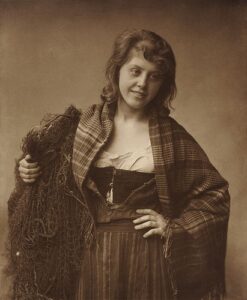Dear Zazie, Here is today’s Lovers’ Chronicle from Mac Tag dedicated to his muse. Who do you think of in the still of the night? Rhett
The Lovers’ Chronicle
Dear Muse,
© copyright 2020 mac tag/cowboy coleridge all rights reserved
© copyright 2019 mac tag/cowboy coleridge all rights reserved
so many memorable
moments from the road
the photographs,
the scenery, the music,
the sight
of the sun and wind
in your hair
stoppin’ whenever
the scene and the light
are in alignment
that night, headed west
on i-20, when we noticed
we could see Orion
through the open moon roof
but mostly, the music
your teasin’ me
as i sing along
with those old
country songs
our classic rock duets,
like an epic rendition
of Open Arms
and the songs,
Unchained Melody
comes to mind,
that inspire carnal pit stops
ready for the next one
© copyright 2018 mac tag/cowboy coleridge all rights reserved
i remember
first smiles,
first kisses
last words
and farewells
i remember
beauty and sorrow
remember
when you said
imagine
i want to
and i try
but
it has been so long
imagine…
on a road trip
music turned up
moon roof wide open
long stretch of wide open
two lane black top
my hand restin’
on the gear shifter
of a sudden
a hand rests on mine
i turn to look at you
in wide wonder
i pull over
and turn to you
words fail
but a tear
tells the tale
© copyright 2017 mac tag/cowboy Coleridge all rights reserved
if i could just write
one line worthy of you…
borne as best could
you, who so well know
unquestionably
the only topic
equally, beyond doubt;
the truth, the passion
the path chosen
depend upon it, after all
there is no seducin’ me
from the path
ah, this will be a struggle
hell, since when is it not
all i want to do
is write good
verse for you
and i cannot
even do that
© copyright 2016 mac tag/cowboycoleridge all rights reserved
 On this day in 1964, composer and songwriter Cole Porter died in Santa Monica, California. He wrote many wonderful songs it was hard to choose just one for the SOD.
On this day in 1964, composer and songwriter Cole Porter died in Santa Monica, California. He wrote many wonderful songs it was hard to choose just one for the SOD.
The Song of the Day is Frank Sinatra‘s version of Porter’s song, “In the Still of the Night”.
In the still of the night, that is what I think of; you. Carryin’ your heart and you leanin’ back in my arms. My body when it was with your body. Kissin’ this and that of you. The what-is-it comes over partin’ flesh and the thrill of under me, you.
*********************************************************************************************************************************************************
| Virgil | |
|---|---|

Depiction of Virgil, 3rd century AD |
|
Today is the birthday of Publius Vergilius Maro (near Mantua, Cisalpine Gaul; October 15, 70 BC – September 21, 19 BC Brundisium), usually called Virgil or Vergil in English; Roman poet of the Augustan period. He is known for three major works of Latin literature, the Eclogues (or Bucolics), the Georgics, and the epic Aeneid. Virgil is traditionally ranked as one of Rome’s greatest poets. His Aeneid has been considered the national epic of ancient Rome from the time of its composition to the present day. Modeled after Homer’s Iliad and Odyssey, the Aeneid follows the Trojan refugee Aeneas as he struggles to fulfill his destiny and arrive on the shores of Italy, which in Roman mythology, is the founding act of Rome. Virgil’s work has had wide and deep influence on Western literature, most notably Dante’s Divine Comedy, in which Virgil appears as Dante’s guide through hell and purgatory.
Verse
Aeneid (29–19 BC)
Book I
- Arma virumque cano, Troiae qui primus ab oris
Italiam fato profugus Laviniaque venit
Litora, multum ille et terris iactatus et alto
Vi superum, saevae memorem Iunonis ob iram,
Multa quoque et bello passus, dum conderet urbem
lnferretque deos Latio, genus unde Latinum
Albanique patres atque altae moenia Romae.
- Arms, and the man I sing, who, forced by Fate,
And haughty Juno’s unrelenting hate,
Expell’d and exil’d, left the Trojan shore.
Long labours both by sea and land he bore,
And in the doubtful war, before he won
The Latian realm, and built the destin’d town;
His banish’d gods restor’d to rites divine,
And settled sure succession in his line,
From whence the race of Alban fathers come,
And the long glories of majestic Rome. - Lines 1–7, as translated by John Dryden (1697).
- Musa, mihi causas memora, quo numine laeso,
quidve dolens, regina deum tot volvere casus
insignem pietate virum, tot adire labores
impulerit. Tantaene animis caelestibus irae? - O Muse! the causes and the crimes relate,
What goddess was provok’d, and whence her hate:
For what offense the Queen of Heav’n began
To persecute so brave, so just a man!
Involv’d his anxious life in endless cares,
Expos’d to wants, and hurry’d into wars!
Can heav’nly minds such high resentment show,
Or exercise their spite in human woe? - Lines 8–11 (tr. John Dryden).
- Dux femina facti.
- A woman leads the way.
- Line 364 (tr. Dryden).
- Quis fallere possit amantem?
- Who can deceive a lover?
- Line 296.
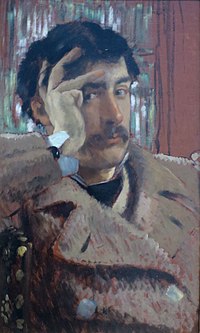
Self-portrait in 1865
Today is the birthday of Jacques Joseph Tissot (Nantes; 15 October 1836 – 8 August 1902 Doubs), Anglicized as James Tissot; painter and illustrator. He was a successful painter of Paris society before moving to London in 1871. He became famous as a genre painter of fashionably dressed women shown in various scenes of everyday life.
In 1875-6, Tissot met Kathleen Newton, a divorcee who became the painter’s companion and frequent model. He composed an etching of her in 1876 entitled Portrait of Mrs N., more commonly titled La frileuse. She moved into Tissot’s household in St. John’s Wood in 1876 and lived with him until her death in the late stages of consumption in 1882. Tissot frequently referred to these years with Newton as the happiest of his life, a time when he was able to live out his dream of a family life.
Gallery

The Circle of the Rue Royale, a scene in Paris seen from the balcony of the Hôtel de Coislin overlooking the Place de la Concorde.

Portrait of James Tissot by Edgar Degas, c.1866-67

Still on Top, 1873

On the Thames, 1882

Moses, watercolor circa 1896–1902

Tissot in 1898 (detail of a self-portrait on silk).
- Bible Illustrations
-

The Creation, Jewish Museum (New York), 1896 and 1902
-

Adam and Eve Driven From Paradise, between 1896 and 1902
-

The Ark Passes Over the Jordan, between 1896 and 1902
-

The Seven Trumpets of Jericho, 1896 and 1902
- The Life of Christ
-

The Baptism of Jesus
-

Jesus Wept
-

Our Lord Jesus Christ
-

The Resurrection
-

Hide & Seek, 1877
-

The Ball, 1880
-

October, 1877
-

Gentleman in a Railway Carriage, 1872
-

Chrysanthemums, 1875
-
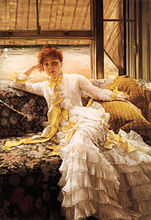
Seaside, 1878
-

Lilacs, 1875
-

The Fireplace, 1869
-
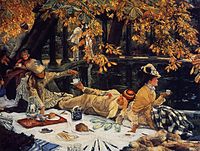
Holiday, 1876
-

The Gallery of H.M.S. ‘Calcutta’ (Portsmouth), 1877
-

The Captain’s Daughter, 1873
-

Kathleen Newton In An Armchair, 1878
-

The Garden Bench, 1882
-

Bad News, 1872
-

Young Lady in a Boat, 1870
-

A Passing Storm, 1876
-

The Thames, 1867
-

Captain Frederick Gustavus Burnaby, 1870
-

La partie carrée, 1870
-
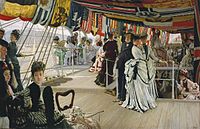
Ball on Shipboard, 1874
-
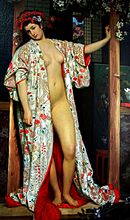
La Japonaise au bain, 1864
-

Mavourneen, Kathleen Newton, 1877
-

At the Rifle Range, 1869
-

Women of Paris – The Circus Lover, 1885
-
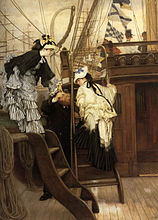
Boarding the Yacht, 1873
-

The Bridesmaid, 1883-83
-

Young Ladies Looking at Japanese Objects, 1869
-

A Woman of Ambition, 1885
Mac Tag

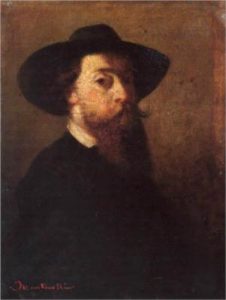 Today is the birthday of Adolphe Joseph Thomas Monticelli (Marseille; October 14, 1824 – June 29, 1886 Marseille); painter of the generation preceding the Impressionists.
Today is the birthday of Adolphe Joseph Thomas Monticelli (Marseille; October 14, 1824 – June 29, 1886 Marseille); painter of the generation preceding the Impressionists.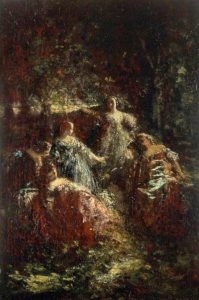




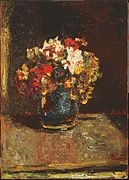


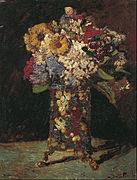


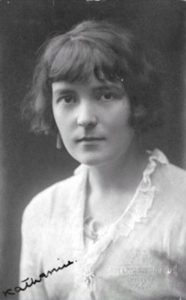 Today is the birthday of Katherine Mansfield (Kathleen Mansfield Murry (née Beauchamp; Wellington, New Zealand 14 October 1888 – 9 January 1923 Fontainebleau, France); modernist writer. She wrote short stories and poetry. Mansfield was diagnosed with pulmonary tuberculosis in 1917 and she died aged 34. She was the daughter of a successful businessman who sent her away to school in England. At 18, her parents brought her back to New Zealand, and she found that she no longer had anything in common with her family.
Today is the birthday of Katherine Mansfield (Kathleen Mansfield Murry (née Beauchamp; Wellington, New Zealand 14 October 1888 – 9 January 1923 Fontainebleau, France); modernist writer. She wrote short stories and poetry. Mansfield was diagnosed with pulmonary tuberculosis in 1917 and she died aged 34. She was the daughter of a successful businessman who sent her away to school in England. At 18, her parents brought her back to New Zealand, and she found that she no longer had anything in common with her family.
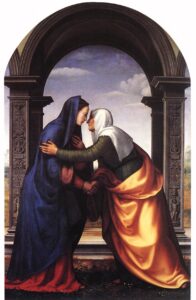



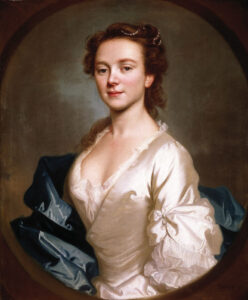

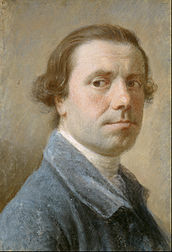

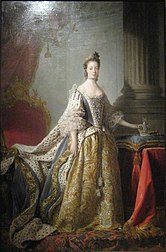




 come, to me
come, to me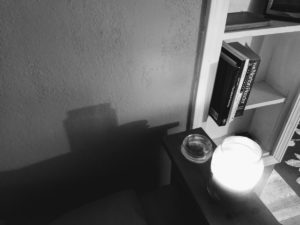 from afar
from afar
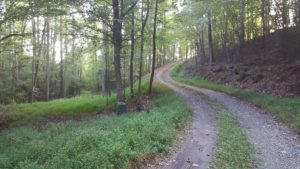

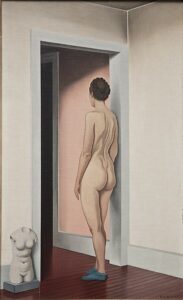
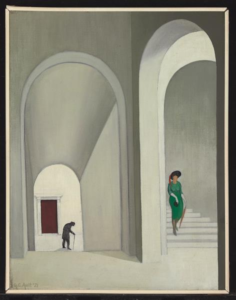
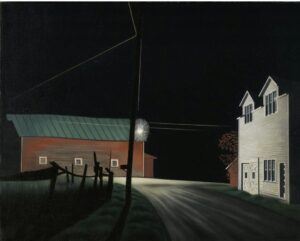
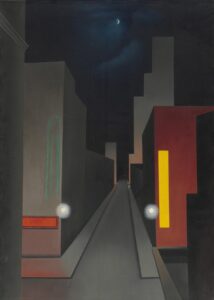
 On this day in 1963, French singer and cultural icon Édith Piaf died at her villa on the French Riviera. The song, “Non, je ne regrette rien” is featured extensively in one of my favorite movies, Christopher Nolan’s 2010 film Inception. In the movie, the extraction agents who infiltrate dreams use the song as a signal to warn their companions that they are about to be woken up. The film stars Marion Cotillard, who portrayed Piaf in the film, La Vie En Rose. Here are the lyrics of the day:
On this day in 1963, French singer and cultural icon Édith Piaf died at her villa on the French Riviera. The song, “Non, je ne regrette rien” is featured extensively in one of my favorite movies, Christopher Nolan’s 2010 film Inception. In the movie, the extraction agents who infiltrate dreams use the song as a signal to warn their companions that they are about to be woken up. The film stars Marion Cotillard, who portrayed Piaf in the film, La Vie En Rose. Here are the lyrics of the day: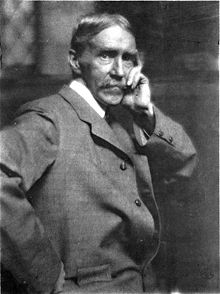








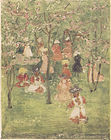
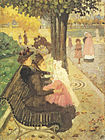









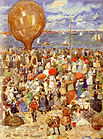

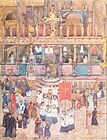






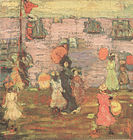







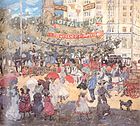
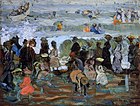


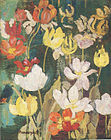








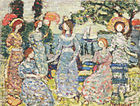



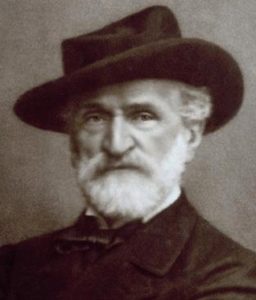

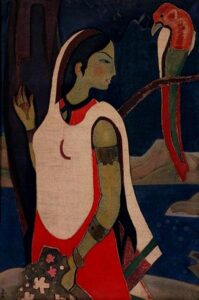

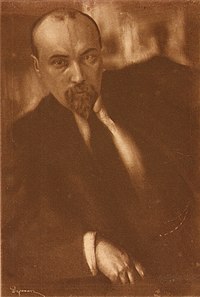

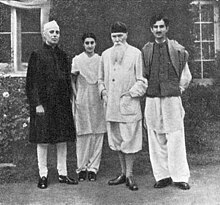

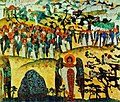

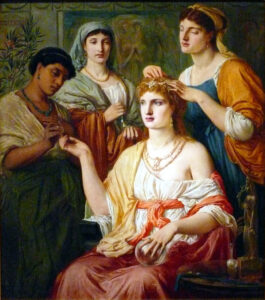



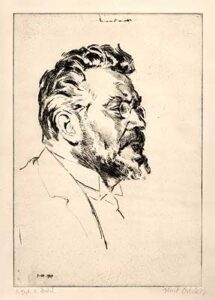
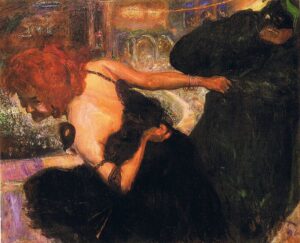
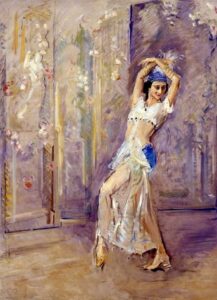
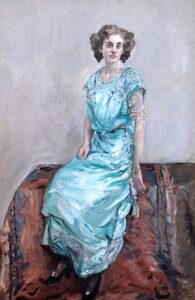
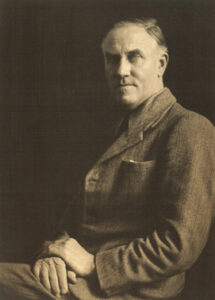
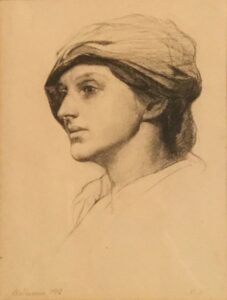
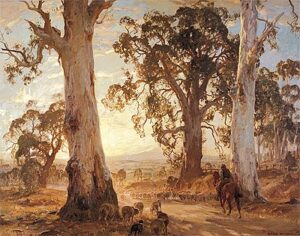
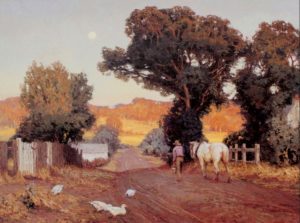

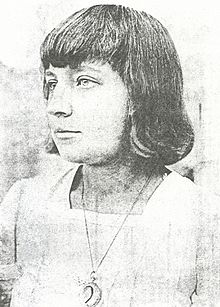





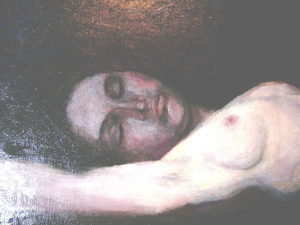
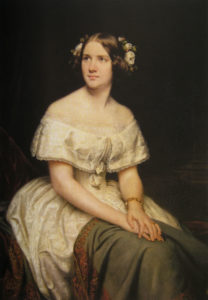 Today is the birthday of Jenny Lind (Johanna Maria Lind; Stockholm, 6 October 1820 – 2 November 1887 Wynd’s Point, Herefordshire); opera singer, often called the “Swedish Nightingale”. One of the most highly regarded singers of the 19th century, she performed in soprano roles in opera in Sweden and across Europe, and undertook a popular concert tour of the United States beginning in 1850. She was a member of the Royal Swedish Academy of Music from 1840.
Today is the birthday of Jenny Lind (Johanna Maria Lind; Stockholm, 6 October 1820 – 2 November 1887 Wynd’s Point, Herefordshire); opera singer, often called the “Swedish Nightingale”. One of the most highly regarded singers of the 19th century, she performed in soprano roles in opera in Sweden and across Europe, and undertook a popular concert tour of the United States beginning in 1850. She was a member of the Royal Swedish Academy of Music from 1840.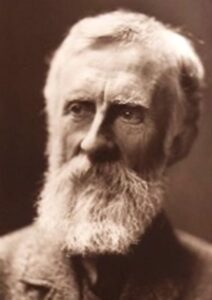 And today is the birthday of Frank Sutcliffe (Francis Meadow Sutcliffe; 6 October 1853 Headingley, Leeds, England – 31 May 1941 Sleights, North Yorkshire, England); pioneering photographic artist whose work presented an enduring record of life in the seaside town of Whitby, England, and surrounding areas, in the late Victorian era and early 20th century. His documentation of the Victorian and Edwardian periods in Whitby, led him to be labelled as the “pictorial Boswell of Whitby.
And today is the birthday of Frank Sutcliffe (Francis Meadow Sutcliffe; 6 October 1853 Headingley, Leeds, England – 31 May 1941 Sleights, North Yorkshire, England); pioneering photographic artist whose work presented an enduring record of life in the seaside town of Whitby, England, and surrounding areas, in the late Victorian era and early 20th century. His documentation of the Victorian and Edwardian periods in Whitby, led him to be labelled as the “pictorial Boswell of Whitby.